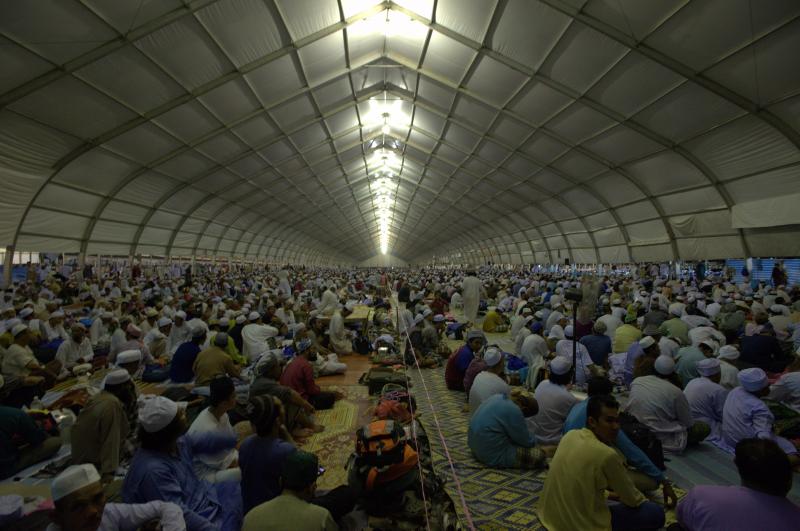Reading Time: 2 minutes
- Tablighi Jamaat (Outreach Society) is a missionary movement with millions of followers across 80+ countries.
- It sends out delegates to different countries to hold gatherings and to also reach out to ordinary Muslims door-to-door urging them to practice Islam as it was done during the lifetime of Islamic Prophet Muhammad.
- It was founded as an offshoot of Deobandi movement, which was the result of India’s 1857 rebellion.
- One of the major reasons of the rebellion was the Enfield rifle that had to be loaded after biting the paper-cartridge open to release the powder; the grease in the cartridge was rumoured to be made of animal fat from beef (offensive to Hindus) & pork (offensive to Muslims).
- Since the rebellion had religious roots, Muslim Ulema (a gathering of learned in the field of religion) got involved.
- And like it happens in all rebellions, some people spoke in favour and some against the rebellion and when there was lack of agreement, two scholars Maulana Nanautavi & Maulana Gangohi decided to fight the British.
- While India couldn’t defeat the British in the mutiny, in 1866-67 Maulana Nanautavi & Maulana Gangohi founded an Islamic seminary (college for priests) in Deoband, Uttar Pradesh, India to protect Islam from being corrupted by the British.
- It was a dream of Maulana Gangohi that Muslims be taught to adopt the good and forbid the evil, as the Quran (central religious text of Islam) decreed.
- To fulfil this dream, Muhammad Ilyas, who was a student of Maulana Gangohi, started the movement called Tablighi Jamaat (TJ) in 1926-27.
- He initially tried to establish a network of mosque-based religious schools but was disappointed that these schools were preparing the students as functionaries (with basic knowledge) and not as preachers, who could pass along the knowledge across generations and people.
- He abandoned his job and became a missionary for reforming Muslims (he didn’t preach to non-Muslims); the movement soon became popular and by 1941, it had 25,000 people attending the conferences.
- It expanded rapidly after India’s partition, and Pakistan’s chapter was the largest till 1971; today the largest chapter is Bangladesh.
- It operates with very little hierarchy and is introvert in conduct, avoiding media attention and refraining from issuing views on political or controversial matters; for this reason it is often criticised by some other Muslim groups.
- But various countries have, off and on, indicated TJ to be a passive supporter of Jihadists.
- It is generally criticised for being backward-looking, especially because women’s role in the movement is seen as inferior and they are expected to observe complete hijab.
Image courtesy of Picture by Wikimedia Commons
Reference shelf :






















